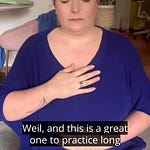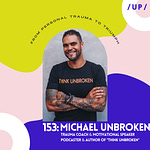Artist Rana Awadallah grew up surrounded by poverty, abuse, and trauma. Diagnosed with major depression and extreme anxiety at the age of 18, she always felt there was something “wrong” with her body. Then, at the age of 24 — after having dealt with chronic pain for a decade — she was diagnosed with osteoarthritis in both of her knees. Shortly after, she was diagnosed with fibromyalgia, PCOS, and possible endometriosis. Having not been taken seriously by loved ones or doctors for years, these diagnoses came as a validation. But they also signaled aggressive change. Because her pain prevented her from continuing work in her dream job (as a chef), these disabilities also created the opportunity to pursue art from home — something she’d had a passion and talent for her entire life. Within a year, she has created a thriving community of fellow Spoonies, inspiring them through her work. She’s taken on brand ambassadors, connected with leading lights in the patient advocacy community, and now…she’s ready to share her story. We are thrilled to welcome the lovely and kind Rana2.0 to Uninvisible Pod!
Tune in as Rana shares:
that she struggled with a weak immune system as a kid
that she started having chronic knee pain at the age of 15
that she was recently diagnosed with osteoarthritis in both of her knees
that her previous diagnoses of depression and anxiety were blamed for her physical issues early on — and she was brushed aside by doctors and her pain not taken seriously
how her physical pain began affecting her ability to work
that she experienced debilitating pain from the onset of her period — and realized eventually that it wasn’t normal
the textbook PCOS symptoms she experienced
how the PCOS diagnosis was validating
that she uses cannabis regularly to manage her pain and mental health
what her day-to-day looks like as she works around chronic pain
how her upbringing influences her momentum to this day — the idea that she should overcome and carry on
the importance of listening to our bodies
that she grew up in a strict Muslim household — and her family denied her mental health struggles
how her identity has impacted her experience in the medical industry
why it’s vital for her to vocally support the Black disabled community














Share this post